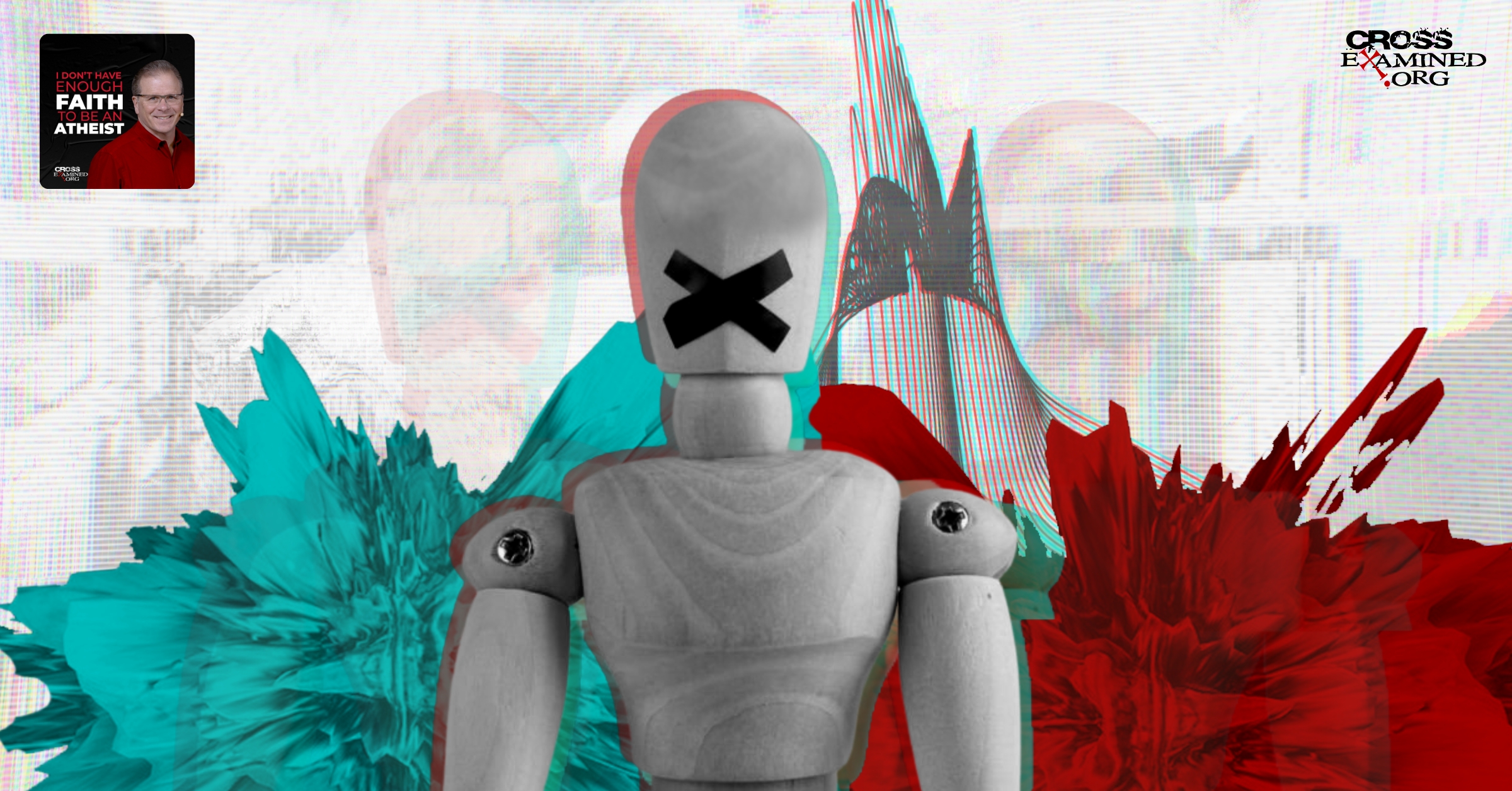God Is Not A Moral Being and the Moral Argument Is Often Wrongheaded
God is not a moral being and often the way the moral argument is used is just wrong. What I mean by the former is that God does not abide by moral commands, nor does he fulfill obligations or virtues in the way that humans do. I am also denying that God is his own standard of goodness in the moral sense. To be one’s own standard would be equivalent to being arbitrary since whatever he did would be in accordance with his standard. To say he can’t violate his nature is also unhelpful as nothing can violate its nature. (What does that even mean? If something did something that supposedly “went against its nature,” then it obviously wasn’t against its nature or the action couldn’t have been done.) In this article, I am going to explain what it means for a human to be moral, demonstrate why that doesn’t apply to God, and then show why the moral argument usually doesn’t work but how it could work.
What Does It Mean for A Being to Be Moral?
There are many theories that try to explain what it means for a human to be moral. Hopefully, a Christian would want to maintain a theory that upholds an objective standard of morality and thus deny moral relativism. Divine command theory is one popular approach in Christian circles to argue for an objective basis for morality. Even if this theory were true, it could not account for why God would be moral. It would also not demonstrate any real basis for an action being moral or immoral other than God just stating it as so. However, if divine command theory were true, it would not demonstrate that God is moral since he does not follow commands from another being. (Saying he follows his own commands reduces to being arbitrary and is probably incoherent.)
Other ethical systems that in my opinion are more rationally acceptable and biblical are virtue theory and natural law ethics. The latter comports well with Romans 2:15 which says that the “law is written” on people’s hearts. In other words, we have a built-in conscience. Natural law teaches that humans have a nature and actions that promote the good of that nature are good actions. Conversely, actions that prohibit the good of our human nature are bad. So, a human killing another human to eat him for dinner is evil because of the nature of being a human (he is made in God’s image). However, it is not morally wrong for a human, or other animal, to kill a deer in order to eat it.
In accordance with this human nature are virtues that are cultivated and actualized. Natural law can imbibe Aristotle’s virtue ethics very will, with certain necessary tweaks. One could argue that being sanctified through trials is one way our virtues are realized. The Sermon on the Mount seems to fit very well with virtue theory, that is, on becoming a person of good character.
In short, humans are moral beings because we have a certain nature. We have a law written on our hearts that reflects this moral aspect of our being that God gave us.
God Transcends Moral Categories
But God has no such nature. He has no moral law written on his heart. He does not become more virtuous. He does not live up to some standard of goodness. He is not even his own standard—whatever that even means. To say that he would not do something that would be considered wrong since his character is in accordance with goodness is still to subordinate his character to something else, or to compare it to something “external” to him. Is this not the point of Job? When Job wants to take God to court the obvious question is raised, “Who would be the judge?” God’s answer to Job as to why God allowed such evil to befall Job is basically, “I’m God and you are not.”
But Doesn’t the Bible Say God Is Good?
Because God is not a human he does not have human virtues. God is simply not morally good in the sense of possessing virtues like humans. But the Bible does say that God is good, praiseworthy, loving, etc. And there is a sense in which he is good, but I don’t think this is moral goodness. The Bible often uses various figures of speech and metaphor to talk about God. In fact, the Bible more often than not uses physical terms to describe God. However, orthodox Christians do not think that God is physical, even though there are probably more descriptions of God that seem to indicate him having a material body than being merely a spirit. Until recently, at least for the most part, orthodox Christians have not held that God has emotions like humans; although, the Bible says that God gets angry, jealous, etc. These descriptions of God are anthropomorphic, meaning that they are just ways of describing God in a human language without really being literal.
God is not a human and is not bound by a human body, does not have changing passions/emotions, and is not constrained or bound by human morality. He cannot be moral or immoral since there is no standard that he measures up to or virtues to fulfill. If there were a standard that was not part of him, then he would not be God. And again, to be his own standard borders on incoherence. It wouldn’t matter what he did, he would be completely “in the right.” We only say things like, “God would never do so and so” because we have a notion of what a morally good action looks like on the human level. However, God is not a human. We have a horrible habit as humans of making God like us rather than recognizing that he is not like us. He is infinite, unlimited being. We are finite beings that he has given a particular nature that allows us to change for the better or worse depending on our actions. He cannot change. As Brian Davies says,
The notion of God as subject to duties or obligations (and as acting in accordance with them) would, I think, have been thought of by [Aquinas] as an unfortunate lapse into anthropomorphism, as reducing God to the level of a human creature.
—Davies, Brian. Thomas Aquinas on God and Evil (Kindle Locations 1253-1255). Oxford University Press. Kindle Edition. (By the way, this is an excellent book that deals with God not being a moral being.)
God Is Good
God is good, in fact, he’s perfect. But he’s not morally perfect as perfection in that sense has the notion of actualizing some moral potential (or being his own perfect standard which I have already criticized as being incoherent and arbitrary). He is metaphysically good and perfect. He is perfect in the sense that he is complete being and lacks nothing. Further, all other perfections that are found in creatures as effects pre-exist in a way in him as the cause. This even includes goodness in the area of morality and virtues, but without making him moral in the way that we are. Matter pre-exists in God as its cause without God being material. But there is a sense in which that God can be said to have virtues, but in a very analogous kind of way.
In Summa Theologiae I. 21. 1 and Summa Contra Gentiles 1.92, 1.93, and 1.94 Aquinas talks about how certain virtues can be said of God. For example, God is said to be just because he gives to people what they deserve. This is because for a man to be just is to give people what they deserve, so we analogously say that God is just. However, he does not owe us anything. Rather, he has constituted us in such a way that we require certain goods to fulfill what God wants us to be. Thus, since God has made us in such a way, he gives us what is required to fulfill this goal. But this does not demonstrate that God is a moral being in the sense of having to act in a certain way lest he be in violation of a moral law. The moral law that we talk about for humans is part of our nature. God has no such nature that is constituted of a moral law and there is no law he is subservient to. He does what he wills and that is as far as it goes. He is not judged by any standard.
The Moral Argument
So how does this relate to the moral argument? Arguments that depend on some reasoning that we are moral because we share in God’s moral goodness are on the wrong track. We are not moral because we are somehow tethered to God’s morality. We are also not moral because we are made in his image. We are made in his image, but as already argued, he is not moral in the sense that we are. We shouldn’t attribute characteristics to God because we have them and are said to be in his image. We should look to him to see how we are in his image, not make him into our image. So the moral argument needs to say something different than our morality needs to be accounted for in a being who is also moral.
But the moral argument can be successful, but probably as part of a cosmological argument. Since we are beings with an objective nature that nature needs accounting for. The objective goodness that we have and are obligated to also needs accounting for. It can’t be accounted for by us since the cause for such a nature with objective moral obligations needs an “external” grounding. The conclusion of such reasoning would be a demonstration of God’s existence.
Conclusion
In conclusion, Christians today need to be very careful how we talk about God’s morality. There is an analogous way in which we can talk about God has having virtues, as Aquinas says. However, this does not translate into God being moral in the way that we are. God is not a human and is thus not bound by human morality. He transcends humanity and our morality. Our perfections do pre-exist in him, but so do all good perfections. We need to recognize that God is not in the image of man. We are in his image. He is not a cosmic superman. He is the transcendent Creator and Sustainer of all finite being.
Original Blog Source: http://bit.ly/2kMK9Wf












Leave a Reply
Want to join the discussion?Feel free to contribute!